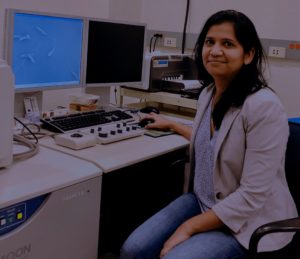
Assistant Professor of Biological Sciences Swati Agrawal
Assistant Professor of Biological Sciences Swati Agrawal penned an article for the American Society for Biochemistry and Molecular Biology entitled “Lonely Science: Women and early-career scientists in academia were among those hardest hit by COVID-19 disruptions.”
During the COVID-19 pandemic, Pascale Guiton lost some of her valuable parasite strains because she was unable to get into her lab to replenish the liquid nitrogen.
Instead of submitting publications before her fourth-year review, a month and a half into her pretenure sabbatical, Krystle McLaughlin was at home taking care of her two small children.
After being told she had been denied a promotion because of low research productivity, Nazzy Pakpour chose to leave her faculty position and seek employment in the private sector.
In August 2019, Megan Filbin won a grant to take her undergraduates to a large medical school to use research instruments not available at her institution. But all the labs were closed to visitors in summer 2020, and complications with limited lab capacity and vaccination requirements stymied the plan in 2021.
As a department chair, Karen Allen had to ramp down the labs of 26 faculty members and then, after reviewing safety evaluations and plans for each one, ramp them all back up.
Sonia Flores and colleagues in her department and division provided meals and vouchers to help pay for dependent care to faculty who were on the front lines fighting COVID-19.
Marlene Belfort said about 2020, “Science became a lonely activity.”
While the COVID-19 pandemic disrupted the professional and personal lives of scientists, some groups were affected more than others. Most were unable to conduct research. Science education, especially skills training, was disrupted. Those who took on childcare, homeschooling or elder care found their lives and work completely upended. Read more.